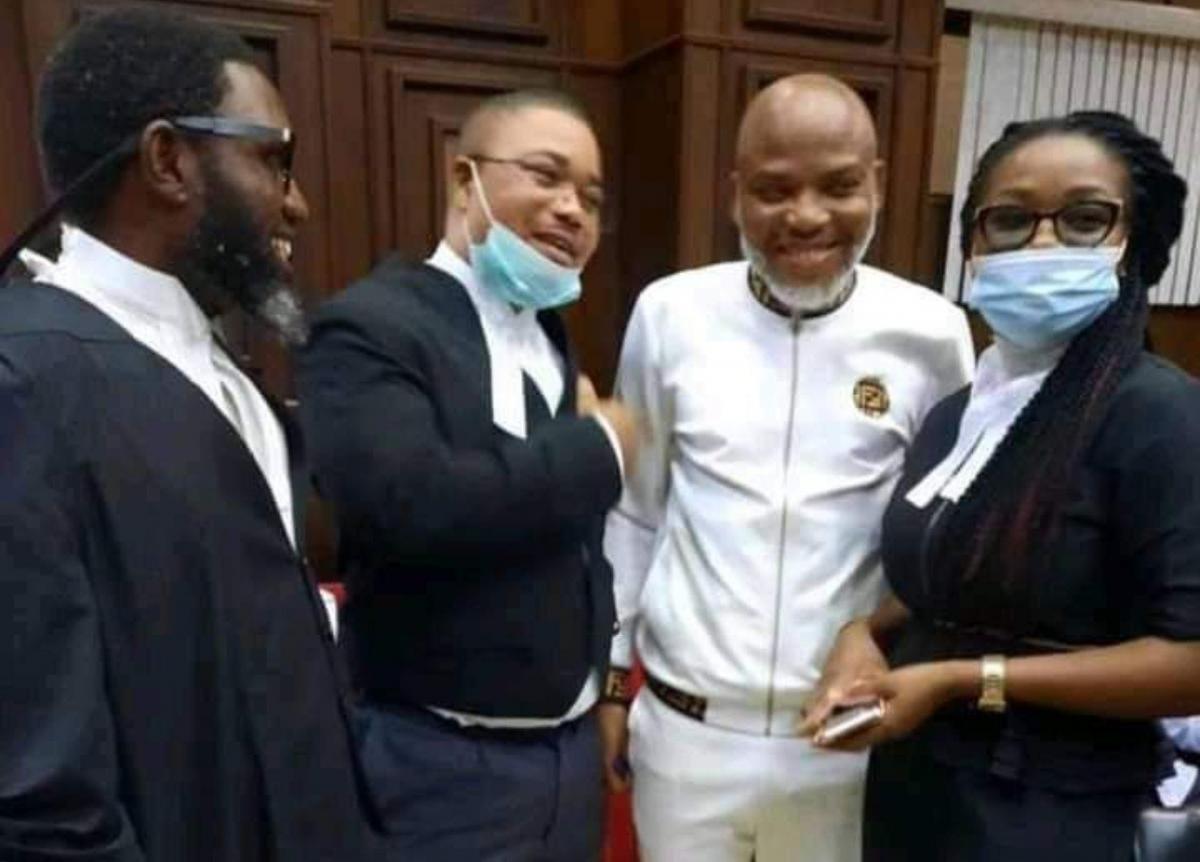There are no products in your shopping cart.
| 0 Items | £0.00 |


SECESSIONIST group the Indigenous People of Biafra (Ipob) has alleged that the federal government has no plans to pursue the trial of its leader Nnamdi Kanu and is employing various methods to keep him in detention perpetually.
Highly controversial, Mr Kanu has been campaigning for the recreation of the independent republic of Biafra which broke away from Nigeria between July 1967 and January 1970 during the civil war. His campaign, which has led to the phenomenal growth of Ipob, has set him at odds with the Nigerian government who him arrested and put on trial for treason.
While the case was still pending, Mr Kanu was granted bail in April 2017 on health grounds but skipped his bail after flouting the conditions given to him by the court and fled Nigeria. However, in a dramatic development in June last year, Mr Kanu was abducted in Kenya in a commando operation carried out by Nigerian security operatives and flown to Nigeria where his trial has resumed.
Earlier this week, Justice Binta Nyako dismissed the bail application as well as Mr Kanu's his bid for the revocation of the arrest warrant issued against him when he ceased to attend court. She described the application, filed by Mr Kanu’s lawyers, led by Mike Ozekhome, as an abuse of the court process.
However, Mr Kanu's lead counsel Ifeanyi Ejiofor, the said the federal government is not ready to prosecute his client. He anchored his claim on the fact that the government had amended the treasonable felony charges seven times against the Ipob leader since 2015 when he was dragged to court.
Mr Ejiofor said: “The federal government is not ready to hear this case and they are not ready to try Nnamdi Kanu. What they want to do is they are applying all methods known to them to keep Nnamdi Kanu in perpetual detention.
“I have done many cases and when a counsel is deposed for accelerated hearing of the matter, you will know. How can you tell me that a charge has been amended seven times since 2015. The last one they amended made it seven times they amended their charge, either reducing or increasing and the court will keep on striking some of them out."